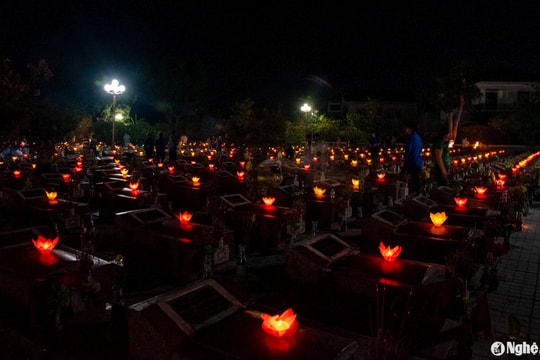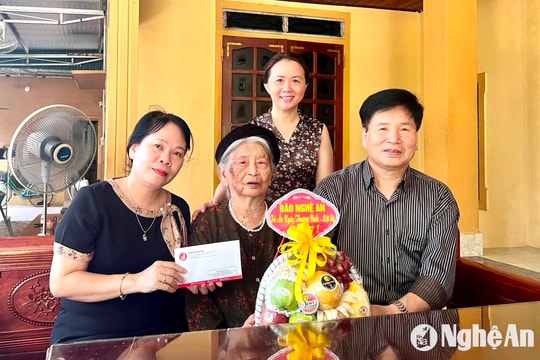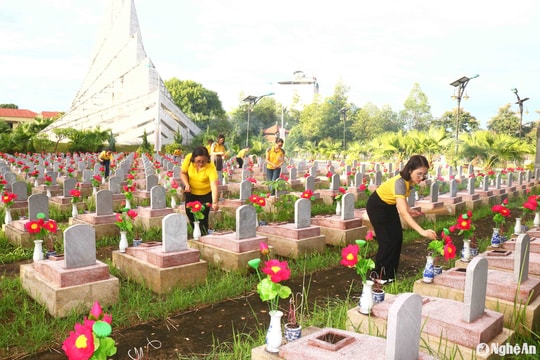Culture of gratitude in the new era
In reality, the activities of gratitude to martyrs, war invalids and people with meritorious services have become regular social activities; not only on War Invalids and Martyrs Day on July 27, not only on July as Gratitude Month. The policy work of our Party and State has been nurtured and elevated into a cultural feature of gratitude of the Vietnamese people in the era of integration and development.
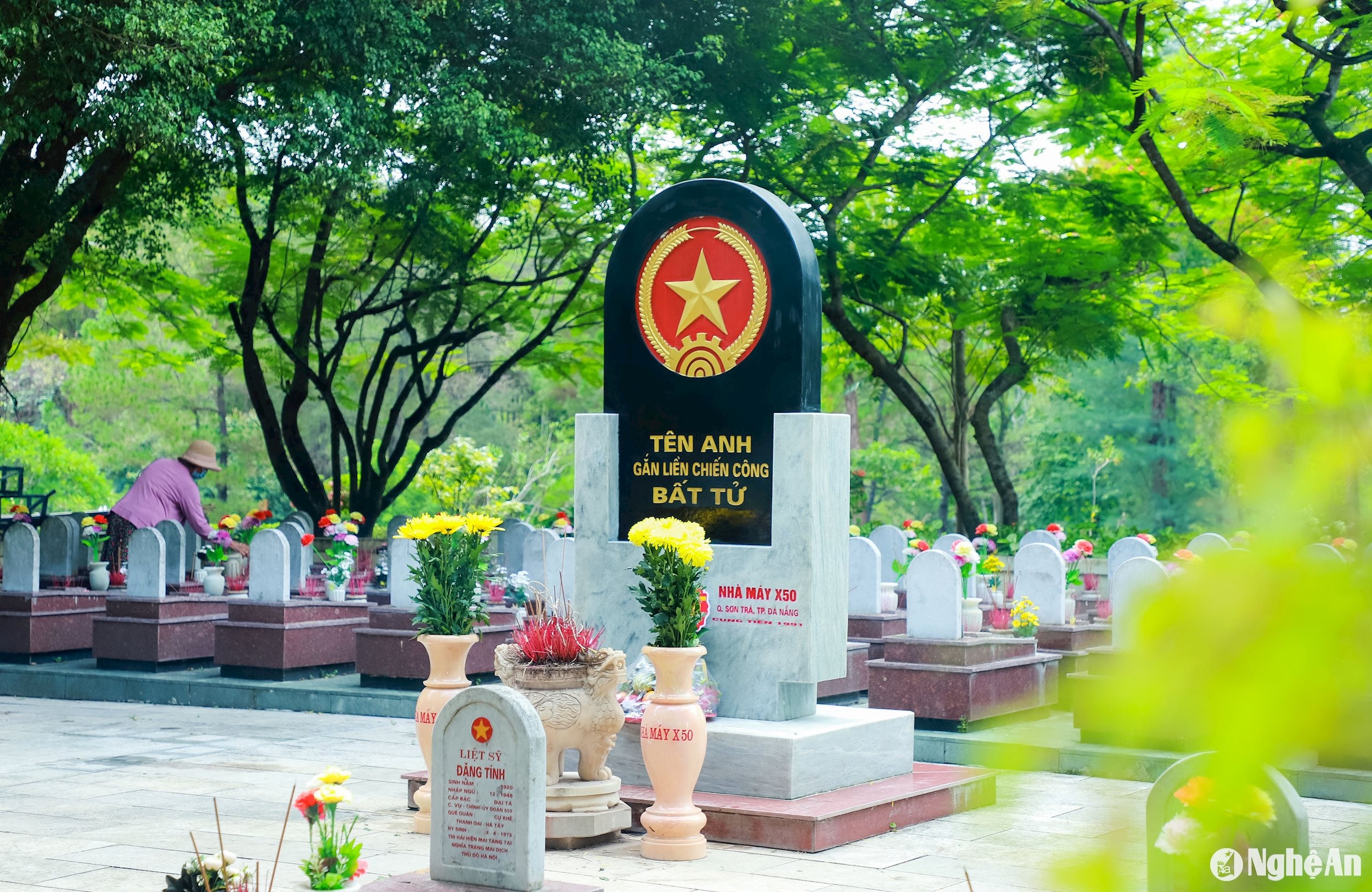
I have a friend who is almost a year older than me, Lieutenant General Nguyen Manh Dau, from Dai Xa village, Nghi Loc district, Nghe An province. He was the Director of the Policy Department of the Ministry of National Defense for nearly the last decade of the last century. He was the first high-ranking officer of our army to lead an interdisciplinary delegation to access the Vietnam War records of the US Department of Defense, to compare and verify many cases of our officers and soldiers who were captured by the enemy, sacrificed and went missing in the resistance war against the US to save the country. At that time, Vietnam and the US had not yet normalized relations. He was the person who presided over the consultation, proposed many regimes and policies for the treatment and gratitude of martyrs, wounded soldiers, and meritorious people... in the new period; including the Ordinance regulating the State honorary title of Heroic Vietnamese Mother in 1994...
Exactly a quarter of a century ago, before leaving the Policy Department to take on a new job, he was worried and remorseful that: Although he and his colleagues and predecessors had tried their best, the volume of problems and subjects that needed to be resolved with satisfactory policies and regimes was still very large. Many urgent and urgent cases and matters were still unfinished. If only he could stay to share with his comrades the burden of the war legacy...
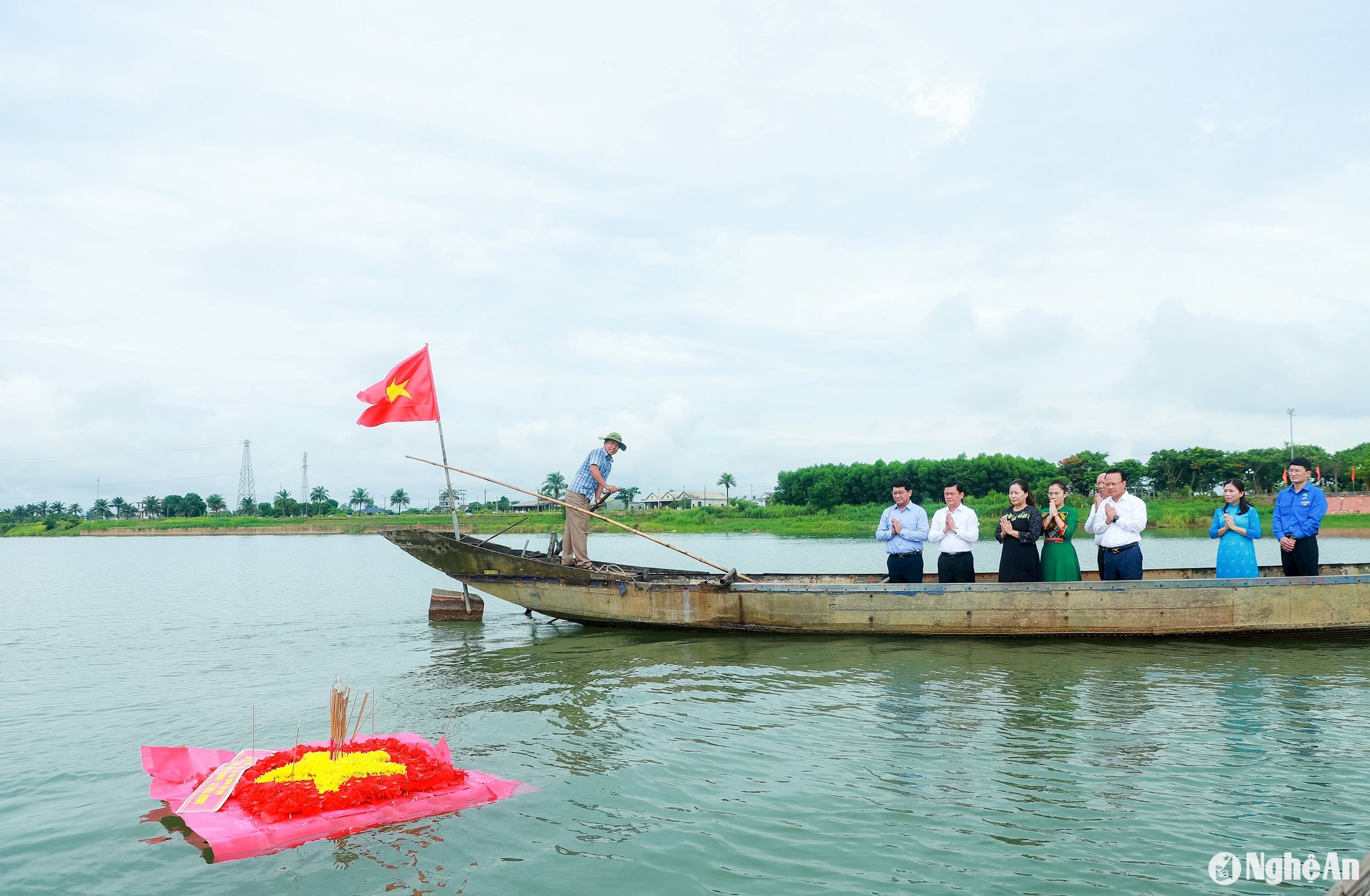
In the early spring of Giap Thin, during a meeting to congratulate him on being admitted to the Vietnam Writers Association, becoming a young writer-general at the age of seventy-five, I reminded him of his worries and regrets from a quarter of a century ago. While happy, his voice suddenly dropped: The legacy of war is still too great. If we stay for another dozen years, you and the entire policy sector of the country will only be able to partially resolve the painful legacy of the resistance war to save the country that has receded and receded further and further... This is a serious, extremely difficult problem that must be solved by many measures and persistently for many more years!
His confession reminded me of more than ten years ago, when I was part of a delegation from the General Department of Politics of the Vietnam People's Army to work with a number of functional agencies of the Army of the Republic of Belarus. By chance, I came across the column "Letters from the Front" in the Army newspaper (Vaiar) of the neighboring country, published on October 15, 2013. Taking up the entire page 6 was a letter from a Red Army soldier dated September 3, 1943, on the Western Front, with both the handwriting and portrait of the letter writer.
Colonel Andrei Subaderov - Editor-in-Chief of the Belarusian Army Information Center said: For decades, Vaiar newspaper has maintained this column regularly and they have never worried about running out of materials.
Not only that, in the General Department of Ideological Work of the Belarusian army (similar to the General Department of Politics of our army), there is also an agency called the "Department of War Remembrance" which specializes in solving post-war problems, such as: searching for missing soldiers; verifying cases of sacrifice, injury or meritorious people; resolving regimes and policies according to current regulations of the State... More than 70 years have passed, but the work of searching, verifying, rewarding... has not yet ended. Currently, the Belarusian army still maintains a special battalion, tirelessly searching for comrades every day on all old battlefields...
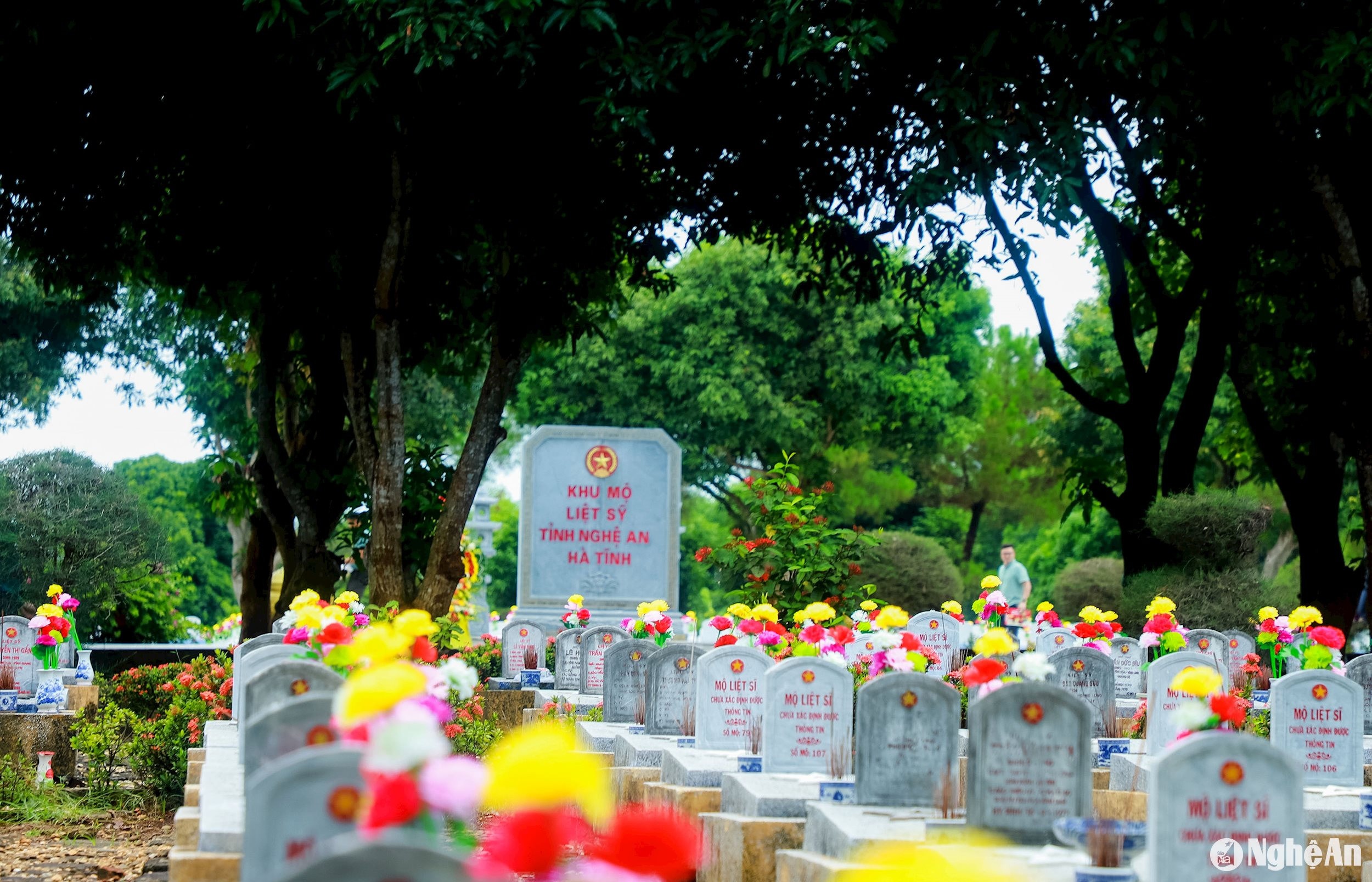
So, the legacy of war is a problem for every country and people in the world. Right after gaining independence through the August Revolution in 1945, establishing the new Vietnam, our country had to carry out several resistance wars for nearly forty years to liberate the nation, protect the Fatherland, unify the country and fulfill international obligations... Therefore, the consequences of war in our country are extremely severe and complicated. Along with that are the limitations of the socio-economic conditions of a backward small-scale peasant country and a young army "from the people", both fighting and building forces in a regular direction...
Besides, there are subjective reasons, such as: Previously, the leading cadres and agencies at all levels did not fully understand the meaning and necessary actions of the policy work for war invalids and martyrs before, during and after each battle and campaign; did not fully anticipate the complexity and difficulties in implementing the policy. After the war, the organization and implementation of the policy was not basic, systematic, scientific; some people and departments were still irresponsible, administrative, bureaucratic... There were even negative phenomena such as: cutting standards for policy subjects, forging documents to gain illegal benefits...
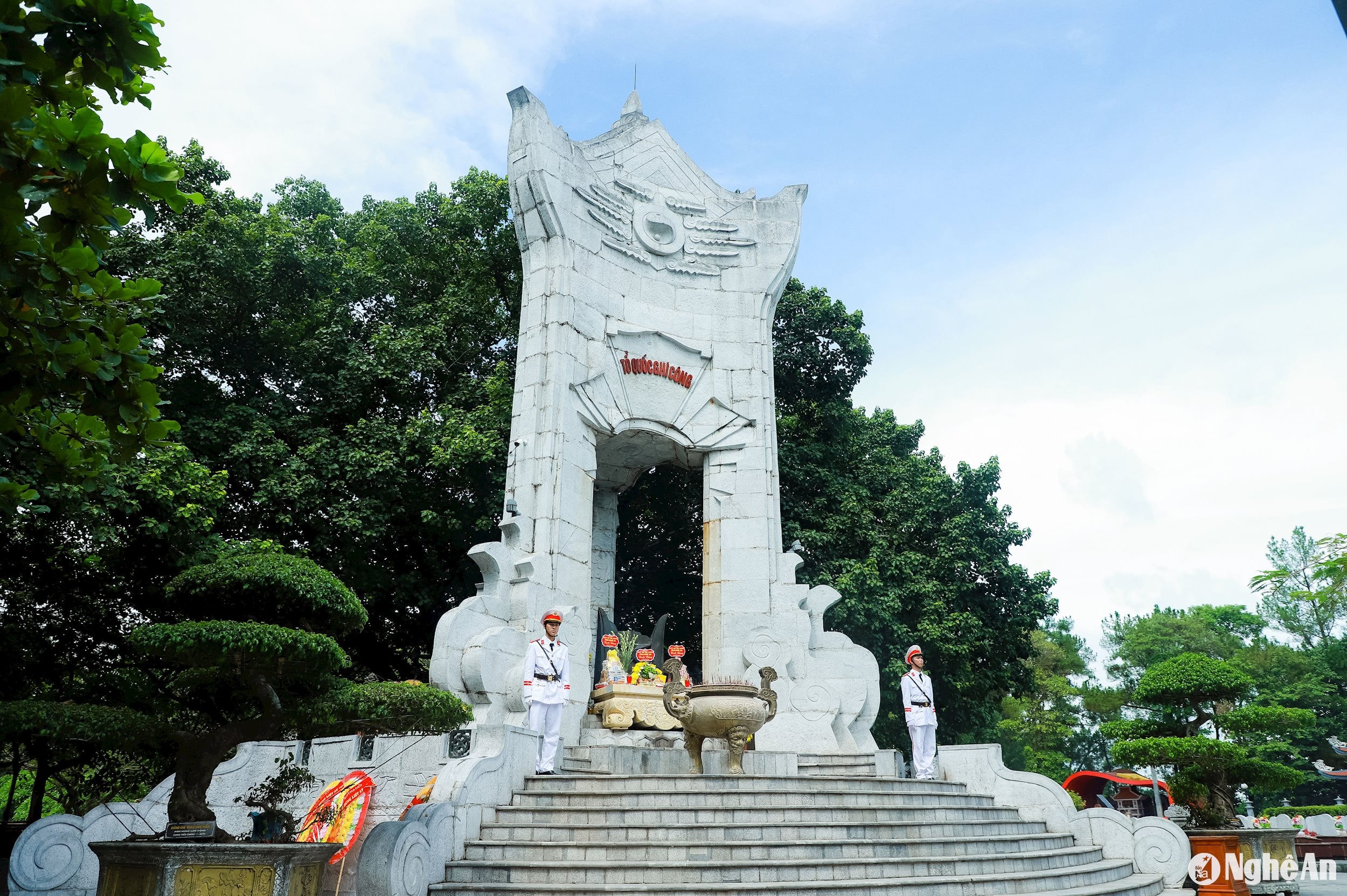
The above negative phenomena not only affect policy work, but also create excuses for hostile forces and political opportunists at home and abroad to take advantage of, sabotage, and distort the policies and guidelines of our Party and State. In reality, there have been many cases where hostile and dissatisfied forces... have taken advantage of the negative phenomena of cadres and the difficulties and deprivations in the lives of a number of war invalids, families of martyrs, policy beneficiaries... to incite disturbances, disrupt social order and political security, and divide the great solidarity of the people. That requires Party committees at all levels, authorities and functional agencies at all localities to regularly propagate and educate war invalids, families of martyrs and people with meritorious services to continue to promote their own and their family traditions in the new period, truly worthy of being exemplary citizens and typical families.
The price of independence, freedom, peace and unity that our nation had to pay was immeasurable. Bombs and war have been gone for decades, but the consequences it left on our country are still enormous and heavy, throughout the country, with complex, difficult and pressing nature, affecting all classes of people in the whole society. In particular, up to now, there are still tens of thousands of mothers waiting every day for news of their children, tens of thousands of wives waiting for news of their husbands, tens of thousands of martyrs' graves whose identities have not been determined and tens of thousands of martyrs whose remains or graves have not been found... That is the great pain of the whole nation.
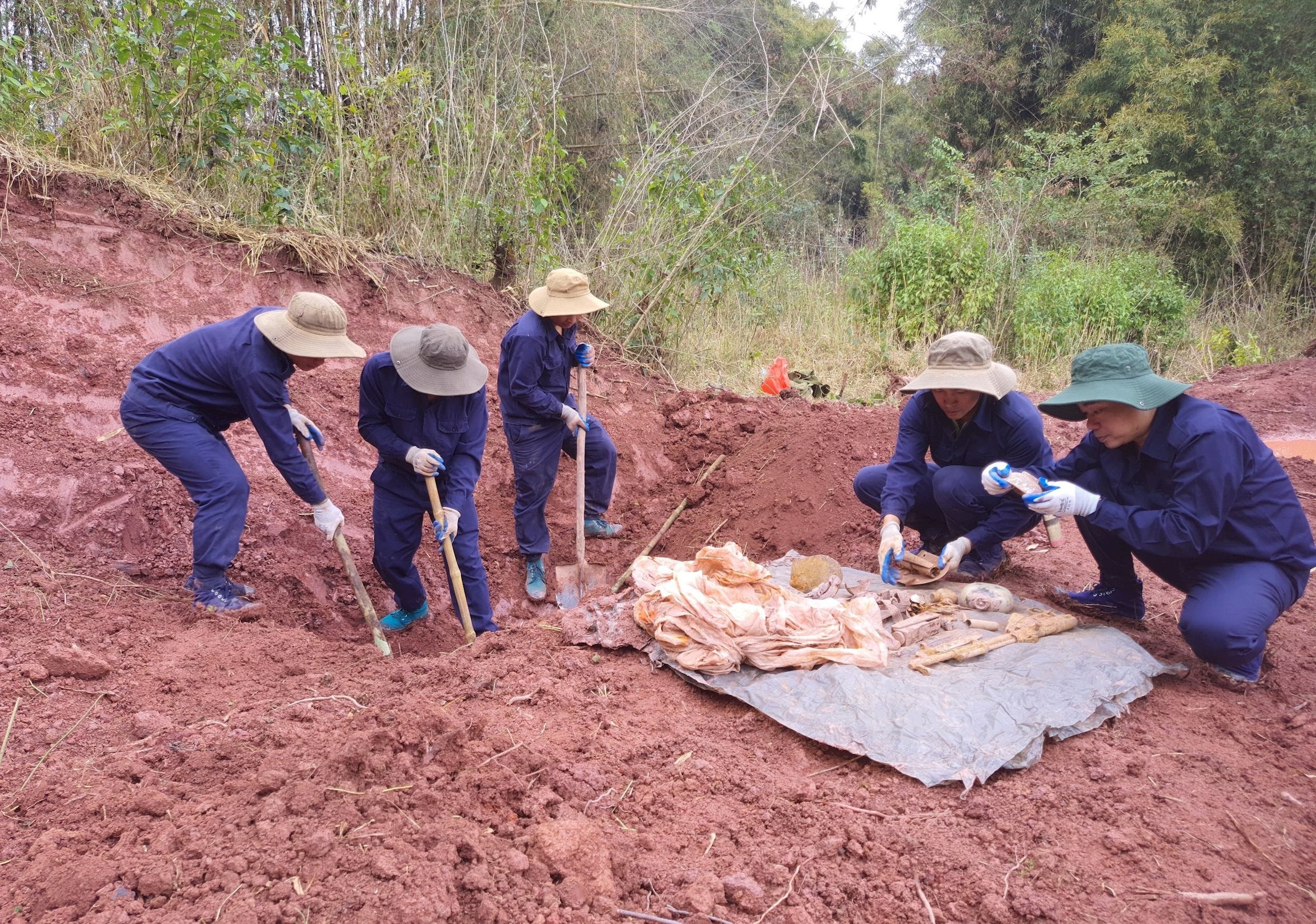
The policy for war invalids, martyrs and people with meritorious services is a major policy in the social policy system of our Party and State. Along with the development of the socialist-oriented market economy, our State has regularly researched, revised and issued appropriate, reasonable and appropriate remuneration policies, suitable to the country's socio-economic conditions in each period.
Agencies, unions, social organizations and enterprises need to continue to maintain and promote movements to contribute to caring for the lives of war invalids, families of martyrs and people with meritorious services in the direction of socialization. This is the beauty of the national cultural tradition, the loyalty and sentiment, the political responsibility of the entire Party and people towards those people and families who have devoted and sacrificed for the independence and freedom of the Fatherland, for the peaceful and happy life of the people.

